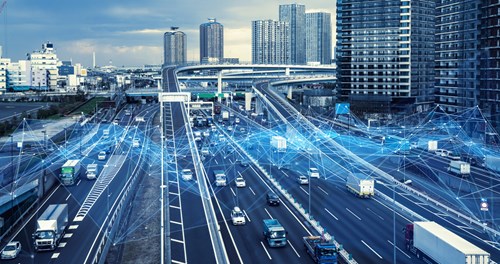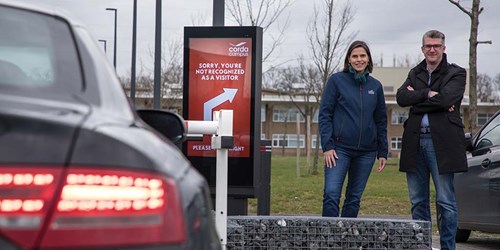
Artificial intelligence, with its capacity to collect and process billions of data points every day, and adapt and finetune its processes through machine learning, has so many applications in the parking industry. From smart city systems to individual parking lots, traffic enforcers to parking operators, AI is already part of the fabric of parking. And, as it becomes more commonplace there is even more potential for AI.
In smart cities, artificial intelligence can take already available real-time traffic information and use it to see not just whether cars are moving, but how they are moving. With this information, it can determine whether cars are circling in search of parking and take measures to guide them to the best available space. For enforcement officers, machine learning algorithms can determine where and when violations are highest, helping them make more effective rounds. And, in parking facilities, AI can help make smart parking software even smarter.

Taking a closer look at Belgium’s smartest car park can give us valuable insight into exactly how AI can take smart parking software to the next level. At the Corda Campus in Hasselt, Belgium, a smart parking system from Cegeka fully integrates entrance barriers, detections loops, signage and ANPR cameras with building access systems. The system can differentiate between employees and visitors, and so once the license plate has been read and the barrier automatically opened, signage displays directional information relevant to that specific driver, ensuring that visitors and employees are taken to their designated parking areas. In the future, the appropriate Corda employee or receptionist will also receive a notification once their visitor has arrived so that they can greet their guest.
At the Corda Campus, many different companies share the car park, and so intelligent software, that can redistribute spaces according to demand is essential. Using historical and real-time data the system can predict what percentage of its private parking spaces each company will use. Vacant spaces can then be digitally rented to other companies or visitors.

For multi-tenant car parks or facilities which cater to multiple users, an intelligent system can transform the parking experience for users. There can often be a discord between a perceived capacity problem and low utilization – drivers believe that spaces are not available when in fact they are just not being directed correctly or allowed access to available spaces. A system that can recognize a user, use real-time and historical data to identify the best available space, and then create a personalized route for that user, can take the pain out of parking.
And, as AI gets smarter and adoption increases, just think what it might achieve outside of the confines of a singular parking facility. Imagine the impact it could have on our congested cities! And could we see an AI controlling all parking facilities in a city, in a state, in a country? Perhaps I am getting ahead of myself, these are all questions for our digital future.



